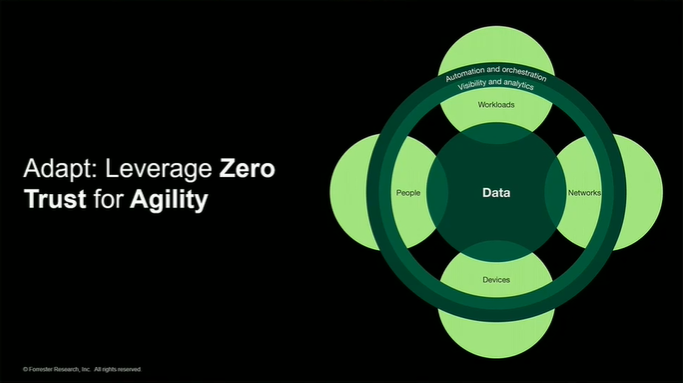While massive growth in the travel sector has been predicted, the digital environment has also massively upped competition amongst service providers, keen to offer travellers the best personalized online booking and buying experience. To do that, service providers need real-time, accurate data gathered from an open, transparent internet, writes Or Lenchner, CEO, Luminati. leveraging the power of millions of consumers worldwide via an IP proxy network (IPPN).
Technology has revolutionized the travel booking experience for consumers. Keen to leverage the digital disruption to generate growth, travel Service Providers have invested in their online customer experience and moved towards digital-only channels. In such a crowded market, remaining competitive means knowing what your customers want, and understanding what your competitors are offering. These insights can be gathered via data which is only available online. However, speaking to CTOs around the world, it’s clear that accessing this crucial data has quickly become one of the most significant challenges facing the travel sector today.
More than just a booking: it’s about knowing and winning the heart of your travellers
Knowing your customers means understanding their present needs as well as anticipating their future demands, whether it’s the holiday experience, the price, or their specific, personalized requirements. As such, the ability to build accurate customer travel profiles is key, while at the same time keeping a close eye on your competitors. Travel service providers must keep a collective finger on the travel data pulse, leveraging intelligent solutions which allow them to make the most of the digital environment.
Developments in the sector have been great news for consumers, making it faster and easier than ever for consumers to book accommodation, activities, stopover experiences, and transportation within the same platform, well in advance of their trip. They’ve also benefited travel service providers: according to one travel marketplace site, travellers who book activities before they depart spend 47% more on accommodation and 81% more on transportation than those who do so once they’ve arrived at their destination. Over the next five years we expect the online travel booking market to generate billions for businesses and stakeholders in the industry, particularly as it’s now millennials who are heading up many households.
This generation is using its digital nous to optimize the booking experience in the most cost-effective. Over a third of millennials select holiday transport based on the lowest cost, and (likely as a result of this), Gen-Alpha families are taking more than three trips a year, on average. This has been made possible as a result of consumers being able to browse for the best deal, and travel service providers being able to offer personalized pricing and offers.
Personalization in travel: (accurate) data is king
Delivering the right package is dependent on accessing data online, including prices offered by competitors. A travel brand must be able to view the content on a competitor’s website in multiple global locations, to ensure that its own pricing meets the expectations of consumers in each area. Travel brands must also ensure that websites are optimized for and tailored to different devices and geographic areas, and present a consistent, appealing user experience. Finally, travel brands need to gather accurate data about each individual traveller to inform marketing decisions. This means simulating actual customers visiting sites in different locations and gathering data, which can then be used by a company to conduct analyses and develop more accurate business insights.
Just as personalization technology has been harnessed to adjust content and pricing on a location or even per-customer basis, (using customers’ IP addresses) so it is now also being used to identify when one travel service provider visits the website of another. A veil has effectively been drawn on a once-open internet: identifying IP addresses means the visitor to a site can be blocked or have to complete a captcha, impeding their access. In a bid to restore openness and transparency to the internet, companies have in the past turned to bulk-buying IP addresses as a means of screening their identity and accessing crucial data. The digital environment is extremely agile though, and before too long brands started identifying these IP addresses as those of their competitors, and subsequently blocking their access
These moves have complicated competitive analysis and data gathering, both of which are essential processes for those operating in the digital domain.
The power of consumers: opening the internet with IPPN
The only way of lifting the veil and restoring transparency to the internet is via an IPPN. An IPPN places an additional IP address (from a pool of millions, globally) between the brand using the network and the website it is visiting. Thanks to a global team of consumers who have opted-in to the network, brands using an IPPN can route their traffic through the IP addresses (i.e. the devices) of millions of consumers, located wherever in the world they choose. Instead of gathering data directly from a website, then, this approach means that the request from the brand using an IPPN will go through a separate device, and that the response back from the website will also go via this device. This prevents the brand’s own IP address from being blocked. Any IP or IP ranges which do get identified can be refreshed and alternatives offered, provided the IPPN has a broad and diversified range of IP addresses (and consumer members).
Consumers (who can opt in and out at any time) receive benefits such as ad-free applications and free subscriptions to valuable software. Travel service providers meanwhile get an accurate, transparent view of the internet, and an ability to view pricing and offers as if they were any one of millions of consumers, browsing on mobile, tablet, PC or laptop. In addition to getting the data they need, brands using an IPPN can also ensure that the content on their website (which is all-important in attracting travellers!) is displayed correctly on each one of these devices in each of the regions they’re located.
Data is clearly pivotal to the growth and success of online travel service providers. A clear view of an open internet is the only way to achieve this, and the only way to deliver the optimum customer experience.
By Or Lenchner





